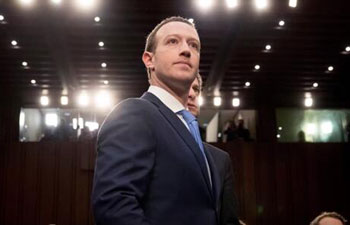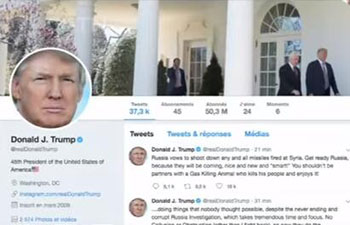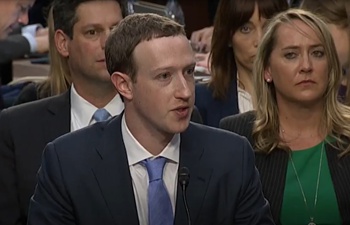HAVANA, April 17 (Xinhua) -- After 12 years in power, Raul Castro will hand over a different Cuba to his successor, who is to be elected by a legislative session that begins Wednesday.
In 2006, when Castro assumed presidency, at first as a temporary replacement for his ailing brother Fidel Castro, the world was surprised by his powerful voice, determination and firmness.
He remained in office for two years at the request of Fidel Castro, and accomplished the difficult transition of replacing the revolutionary leader who was in power for 48 years.
In 2008, Raul Castro was officially elected president of the State Council and his work focused on reorganizing the government structure and removing longstanding obstacles to development.
One of his priorities on beginning his term was to increase the country's agricultural productivity. Over the last decade, the Cuban Government has handed over more than one million hectares of idle land to private farmers and improved their working conditions.
Another important reform was the expansion of the private sector in 2010. Citizens were able to work in public transportation, restaurants, apartment and house rental businesses as well as street businesses.
In 2011, the sixth congress of the Communist Party of Cuba (PCC) elected Castro as first secretary of the party and Havana embarked on a new path.
It was also the moment when the party decided to begin a transformation process, modernizing Cuba's economic and social model with a package of reforms to make the economy more efficient and promote the private sector.
More than 300 measures were approved at that time, including a flexible migration policy, ending the two-currency system, promoting foreign investment and eliminating massive public subsidies.
At the end of 2011, Castro authorized the sale of homes between Cuban citizens, and three years later, free sale of vehicles began in Cuba.
In January 2013, the government reformed its migration policy by ending the need for Cubans to have a travel permit to travel abroad.
In 2014, a new foreign investment law was approved, offering incentives to international companies to invest in the island, including tax breaks and repatriation of capital.
The same year, the Mariel Port Terminal and Mariel Special Economic Development Zone, about 45 km west of Havana, were inaugurated, becoming Cuba's flagship foreign investment project and main industrial hub respectively.
The highlight of Raul Castro's presidency came on Dec.17, 2014, when he announced the re-establishment of diplomatic relations with the United States and normalizing bilateral ties after more than half a century of enmity.
In April 2015, he met then U.S. President Barack Obama at the seventh Summit of the Americas in Panama. In March 2016, Obama visited Havana, a historic moment that bolstered the rapprochement between the two countries.
In April 2016, the seventh PCC congress reelected Castro as first secretary of the party. The congress also modified some guidelines in the process of reforming Cuba's economic and social model, backing steps to encourage more foreign investment and a growing private sector made up of small businesses. However, Castro made it clear that such changes would not be rushed.
In December 2017, the National Assembly extended his term until April 19, two months longer than originally scheduled, to grapple with the damage caused by Hurricane Irma in September 2017. The storm destroyed thousands of homes, tourist facilities and infrastructure across the island.
On that occasion, Castro assured that Cuba would continue the process of change initiated in 2011 to build a "prosperous and sustainable socialism."
On Monday, the State Council announced the legislative meeting to elect a new president had been moved to April 18. The session will see 605 lawmakers elect members of the State Council, including a president to replace Raul Castro, a first vice-president and five vice-presidents.
The 86-year-old leader will continue as first secretary of the PCC until 2021.













